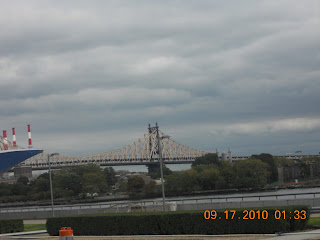World Energy Forum
The High-Level Conference on Energy At The United Nations
Dr. Kandeh K. Yumkella introduced the topic, explaining how important it is for everyone in the world to have access to energy. He said that in order to help women and take care of health issues among other things, homes and hospitals should have energy access. Moreover, energy is needed to power the economy to make a country successful. Therefore, energy access and efficiency are very important. Dr. Yumkella had two proposals: there should be universal access to energy by the year 2030 and a reduction in global energy intensity by 40% by 2030.
Dr. Nobosja Nakicenovic spoke about how the well developed countries have the most access to energy and therefore use the most. Furthermore, health and climate change are two major problems that can be fixed if energy concerns are addressed.
Mr. Paul Loeffelman discussed more about financing between the public and private sectors. He reasoned that if both of these sectors can work together, the private sector providing energy and the public sector helping to distribute energy, all countries will gain access to energy.
Another session was addressing the Energy Transit Security. The argument was who should have control of energy sources and how should it be distributed to ensure all can receive it.
Professor Albert Bressand addressed four major securities points: physical, commercial, economic and politics. Physical meant that the pipelines and transit should safe and maintained well. But the question that arose was who should pay for the security? In commercial, pipeline owners were making money because they believed that the product that went through the pipelines was their own and therefore were entitled to that profit as well. So the question became was it fair that these companies could choose who received gas and who did not? Economics had to do with pay. Basically who should be involved with transporting energy? And how much should these companies be paid? The last concern was politics. This section was about whether the government should be involved when a pipeline ran through many countries. For example, if a pipeline ran through France and Germany, must France only take care of its own pipelines that ran through the country or should it also care about Germany’s pipelines?
Professor Bressand believed the best solution would be to have an independent contractor or many contractors who were not politically affiliated and were more interested in making sure all the people received energy at a reasonable price. Once this company was established, there would be stakeholders who would help direct the energy to places where it was needed the most.
Ms. Natasha Udensiva-Brenner focused more on the complications of energy today. The fact that only a few countries such as Qatar, Russia and Australia are providing energy to most of the countries gives them an edge in deciding who gets energy and at what price. Amongst these few countries that provide natural gas, there is heavy competition. The idea is to create some sort uniformity so that all sides can benefit.
This was an eye opening experience. If interested in updates or past events of the World Energy Forum please check out this link regularly: http://www.theworldenergy.org/beta/
-Arunna R.






































No comments:
Post a Comment